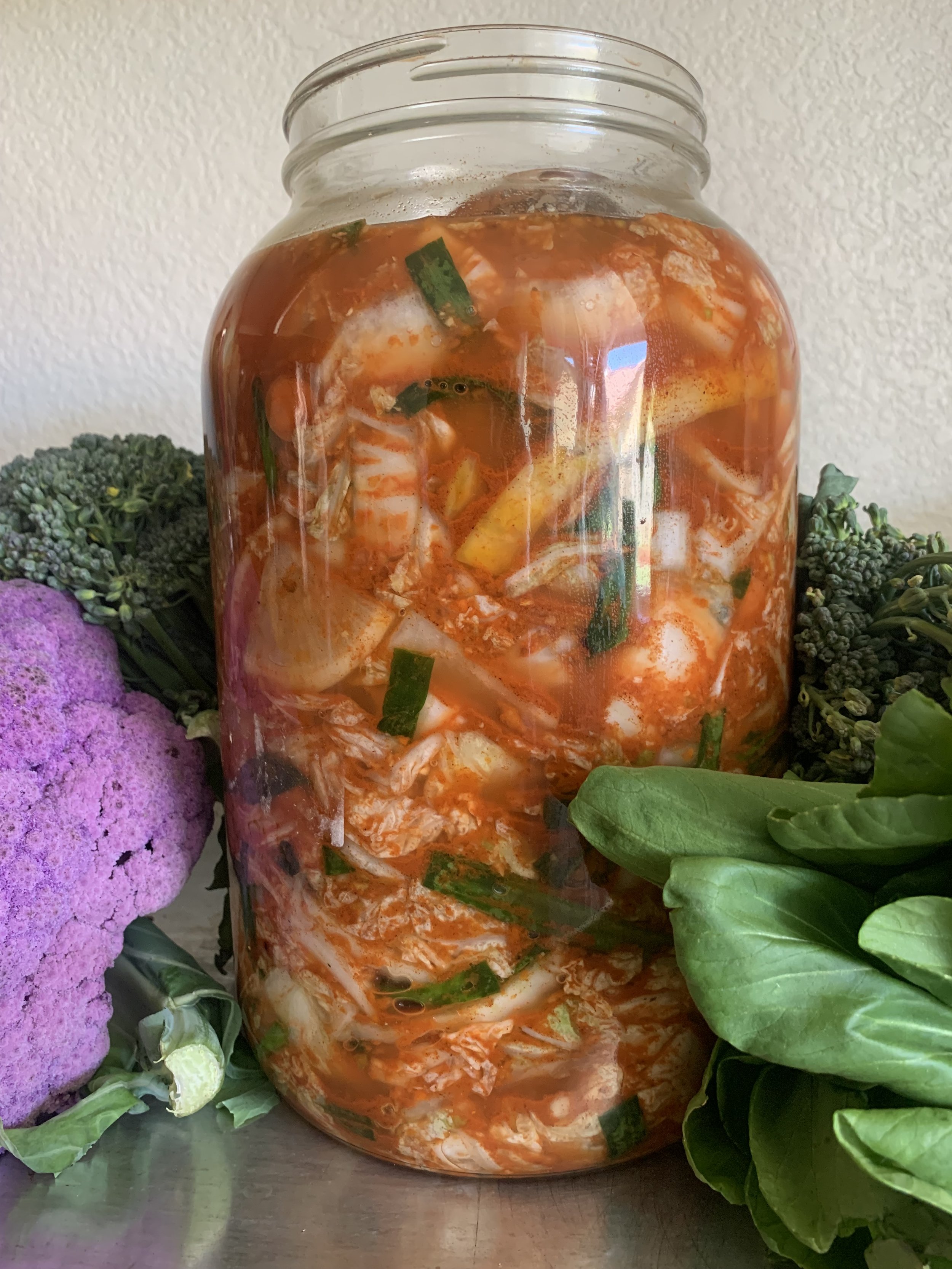Fermentation
I bet you all have seen a jar of kimchi, sauerkraut, kombucha, or miso somewhere on a shelf, and you wondered: What is that food good for? Also, I am certain that at some point in your life, you had beer, wine, coffee, and chocolate; these are all fermented foods.
I am so excited to talk to you about fermentation, since I am a Certified Fermentationist and literally obsessed with fermented foods.
First, what is fermentation?
From a biochemical point of view, it’s a metabolic breakdown of a nutrient in an anaerobic environment, meaning without oxygen. Fermentation occurs when different microorganisms (like bacteria, some yeast, some molds), feed on the sugars from food, producing different acids and alcohols, releasing vitamins and enzymes, and changing the acidity of the environment. By increasing the acidity of the environment, different strains of beneficial bacteria can develop, creating a probiotic food.
Fermentation and pickling are both forms of preserving foods(keeping food good for long periods), but fermented foods are alive while some preserved foods do not contain any strains of live bacteria. Also, some products start as fermented foods, but they lose their live cultures through different processing methods that use high temperatures(like baking).
Most people buy probiotics in supplement form, but you can also get them from your diet by adding fermented vegetables and other fermented foods to your daily meals.
Fermented vegetables are an incredible addition to your diet because they provide and inoculate your digestive tract with probiotics with every bite. They are rich in live cultures and highly assimilable nutrients like vitamin C. They are wild fermented, meaning they don’t need a laboratory-manufactured starter culture for propagation.
Adding fermented foods to your diet can have a lot of benefits like lowering chronic inflammation, better digestion, modulating digestive inflammation, better nutrient assimilation, weight loss, restoring mineral reserves, lowering blood glucose, adding digestive enzymes, and more.
While fermented foods are all healthy and recommended as a food group, they are not for everyone. This depends on everyone’s health problems, food sensitivities, or other gut issues. This is where my expertise comes in.
I will do my best, in time, to teach you more about the fermentation process, fermented foods, probiotics, prebiotics, enzymes, ways to incorporate them in our day-to-day life, and also contraindications.
I will also start sharing some of my magical ferments on this blog, so keep following.
In good health,
Ioana



